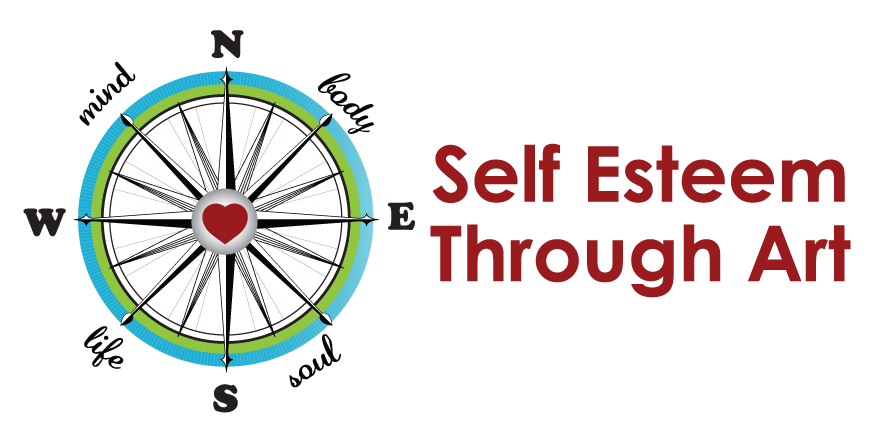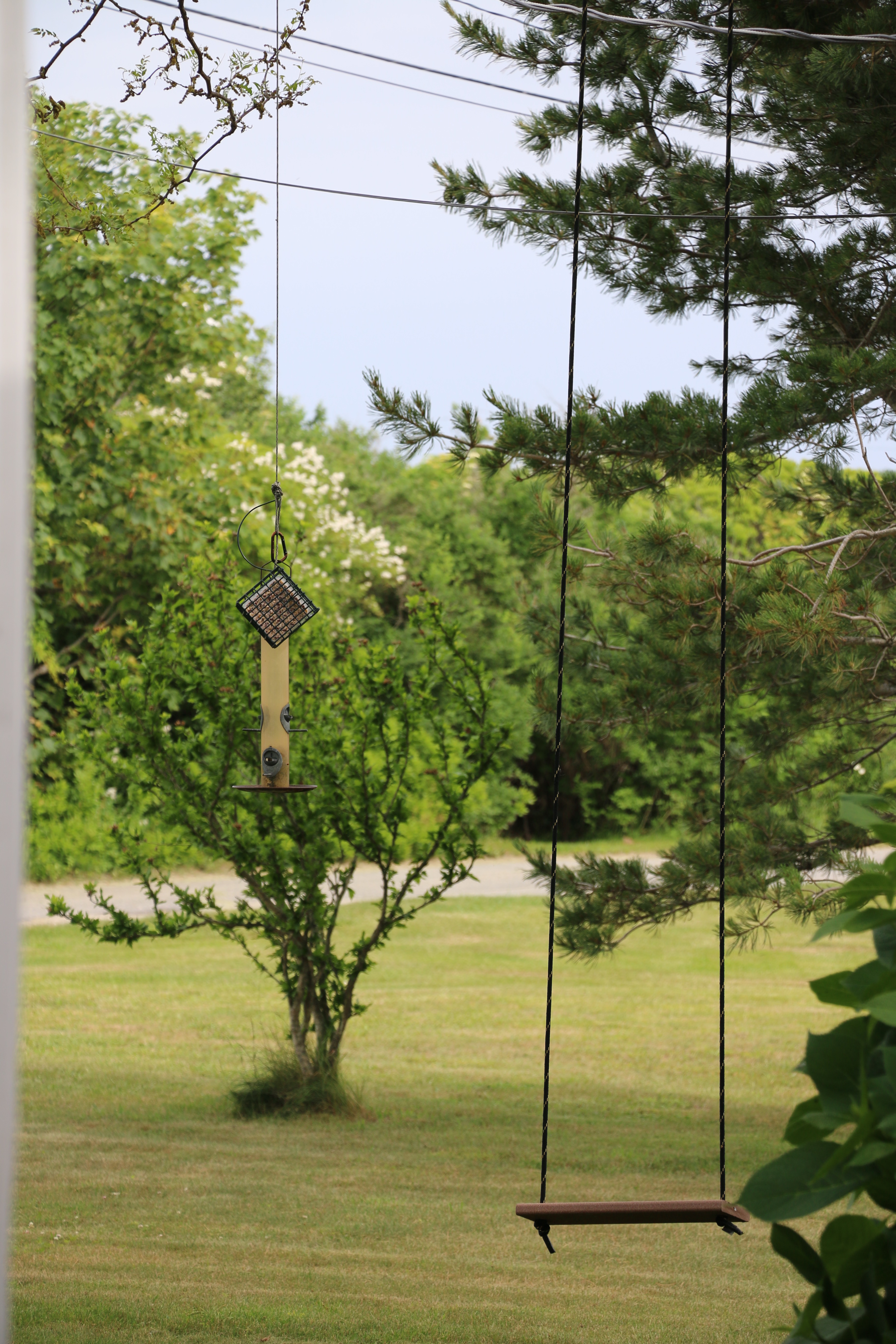My children are in the process of saving their own money so they can make a couple bigger-ticket purchases. In order to reach that goal, my oldest daughter thought it would be a great idea to caddy at a local country club for the summer. We agreed. She immediately rallied some of her friends and it’s safe to say that visions of High School Musical 2 were in the back of her mind: wealthy clientele, a bit of goofing off, and maybe even a few cute boys. The IMAGINING it was a breeze, the actual DOING it, not so much! Fear started to set in, and, as she often does when she is anxious or fearful about something, she started to protest. She said she no longer wanted to caddy. She no longer wanted her big-ticket item. She no longer cared. We knew she was posturing and she DID want her own money, she DID want the big ticket item, and she DID care, so we nurtured and we encouraged. Don’t get me wrong, watching your child suffer is excruciatingly difficult and it would have been much easier to allow her to cower and quit before starting. It also would have been easier (and more reactive) to tell her to stop complaining and suck it up. But, in doing that, we not only would have robbed her of a valuable life lesson, but we would have also stolen an immense amount of joy and pride from her as well.
 On the eve of her first day at work, we heard every excuse under the sun: her back hurt, her stomach hurt, we should go to the beach, none of her friends were going to be there, she is not good with people, what if she was bad at it, and on and on and on. Finally, I took both her hands in mine, looked her right in the eye, and told her that I knew she didn’t want to go through with this, in part because she was afraid, but I wanted to teach her a 5-word lesson that I hoped she would carry with her from this day forward. She looked at me and said, “I know what your lesson is going to be — tough luck, you’re going anyways.” (*I made a mental note that if that is truly what she thought I was going to say, then I want to make a conscious effort to work on my delivery and tone.) I told her no, that is not what I was going to say and then I told her this lesson: “YOU CAN DO HARD THINGS!” I encouraged her to give herself a chance, to show up, and to allow the actual experience to dictate her feelings, not her fears around the upcoming experience. The following day, forty bucks in hand, she came off the course beaming. She did it. She made it through. Her golfer was nice (and really good, which made her job easier). Her caddy partner treated her with respect and empathy, remembering what it was like to be a beginner. And, a side-effect of being bigger than your fear is a beaming smile and undeniable pride. We had emboldened and empowered her and she is going to be a braver, stronger, and more adventurous kid because of it.
On the eve of her first day at work, we heard every excuse under the sun: her back hurt, her stomach hurt, we should go to the beach, none of her friends were going to be there, she is not good with people, what if she was bad at it, and on and on and on. Finally, I took both her hands in mine, looked her right in the eye, and told her that I knew she didn’t want to go through with this, in part because she was afraid, but I wanted to teach her a 5-word lesson that I hoped she would carry with her from this day forward. She looked at me and said, “I know what your lesson is going to be — tough luck, you’re going anyways.” (*I made a mental note that if that is truly what she thought I was going to say, then I want to make a conscious effort to work on my delivery and tone.) I told her no, that is not what I was going to say and then I told her this lesson: “YOU CAN DO HARD THINGS!” I encouraged her to give herself a chance, to show up, and to allow the actual experience to dictate her feelings, not her fears around the upcoming experience. The following day, forty bucks in hand, she came off the course beaming. She did it. She made it through. Her golfer was nice (and really good, which made her job easier). Her caddy partner treated her with respect and empathy, remembering what it was like to be a beginner. And, a side-effect of being bigger than your fear is a beaming smile and undeniable pride. We had emboldened and empowered her and she is going to be a braver, stronger, and more adventurous kid because of it.
Flashback to many, many moons ago when I was about the same age as my oldest daughter is now. Like her, I enjoyed shopping and spending time with friends. Young kids had many more opportunities to work and earn their own money back then. I had a paper route and lot of loyal and generous customers, so I always had my own spending money. I grew up in the city and had easy access to public transportation—everything was either within walking distance or an easy bus or train ride away. One day, I asked my father if I could go to the mall the next town over. He laid down a couple of ground rules and said yes. This is well before cell phones, so we made sure I had change for the phone booth, money for the bus, and knew what time I had to be home. Also, my grandmother lived within walking distance to the mall, so I was reminded that she could also be my emergency contact. I remember being so happy and feeling so grown up when I put my bus fare in the turnstile. The trip went flawlessly and I came home with a few cassettes, some Love’s Baby Soft, and what I now know to be an inappropriate t-shirt that read “Objects under this shirt are larger than they appear.” (oh, the horror!) I was pretty proud of myself, but when I got home my parents were arguing. My mother had come home by then and felt I was too young and it was too dangerous and it was a decision that should have been talked about by both parents. I could feel myself shrinking and deflating and beginning to cower beneath the palpable fear in my house. I started to question my ability to know myself and make sound decisions. As such, I began to constantly seek out approval instead of trusting my internal compass. The seeking-out-approval thing is something that became so deeply ingrained that it took me literal decades to unlearn it. Who are we kidding? Truth be told, I am STILL unlearning it but I am getting better and better at it every day.
 Looking back and having children of my own, I know what the fear was all about and I can understand it and sympathize with it. My father was notorious for his questionable-at-best decision-making and my mother was somewhat justified in second-guessing him. However, in this case, she was also second-guessing ME and that stung. With the exception of a lapse in retail judgment which lead me to buy a t-shirt that I was never allowed to wear, I did all the right things. But, as it often did in my house, fear continued to win out. There were no more trips to the mall. There was also the unspoken understanding that there would be no more asking my father. The fear of what could go wrong in a possible scenario had a choke hold on the possibility that something could go Right. Right was left gasping for air and begging to be seen.
Looking back and having children of my own, I know what the fear was all about and I can understand it and sympathize with it. My father was notorious for his questionable-at-best decision-making and my mother was somewhat justified in second-guessing him. However, in this case, she was also second-guessing ME and that stung. With the exception of a lapse in retail judgment which lead me to buy a t-shirt that I was never allowed to wear, I did all the right things. But, as it often did in my house, fear continued to win out. There were no more trips to the mall. There was also the unspoken understanding that there would be no more asking my father. The fear of what could go wrong in a possible scenario had a choke hold on the possibility that something could go Right. Right was left gasping for air and begging to be seen.
The first story about my daughter was about introducing faith when an abundance of fear was present. The second story about me and the mall was about what happens when fear is introduced to an area in which you already have faith.
The most frequent responses to your children’s growth, development, and questions are going to be yes, yes with conditions, a justified no, an unjustified no, and a not-quite-yet-we-will-work-up-to-that. Examples:
- Can I go to the birthday party? Yes.
- Can I go to the 8th grade sleepover? Yes, with conditions (ex: parental supervision, no boys, no alcohol, etc)
- Can I wear a t-shirt that says “Objects under this shirt are larger than they appear?” Justified no.
- I am ready and I understand the risks. Can I walk to school by myself? Unjustified no. Gut check time—your fear might be in charge of the decision-making right now.
- Can I watch that R-rated movie? It looks funny. Not quite yet…we will work up to that.
Parenting is a very individual process. I firmly believe that we do the absolute best we can with the tools we have available. I also know my parents did the best they could with the tools they had available. My freer-range parenting is not for everyone—each family is different. There is no real right way or wrong way, there is only this way and that way (*unless you are abusive—we can file any kind of abuse under the wrong way).
That being said, when we think about our parenting, we have to come at it with the understanding that it has a direct effect on our children and how they view the world. We can keep them in a bubble, make sure they are well-versed in every bad thing that could potentially happen, and put the fear of God into them. Or, we can fortify them with a strong moral compass, generate awareness about potential dangers, and help them work on strategies for handling such potential hazards as they make their way out into the world. Personally, I prefer the latter and I tend to look at parenting with a bird’s eye, wide-angle view. Instead of being reactive, I work to be responsive. HUGE difference. The former crushes self-esteem and self-awareness while the latter boosts those character traits.
When navigating the tricky maze of parenting, it is important to consider how your response to your children is affecting them in the moment. And ALSO how it will affect them 15 years from now.
REMEMBER:
- Reactive vs. Responsive.
- Fear vs. Faith.
- Big Picture (macro) vs. Little Picture (micro).
- Authoritarian (autocratic, rigid) vs. Authoritative (democratic, supportive).
It’s your call.
 “A ship is safe in harbor…but that is not what ships are built for.” ~John A. Shedd
“A ship is safe in harbor…but that is not what ships are built for.” ~John A. Shedd


Jen Pipe,
you are amazing with pen and paper…